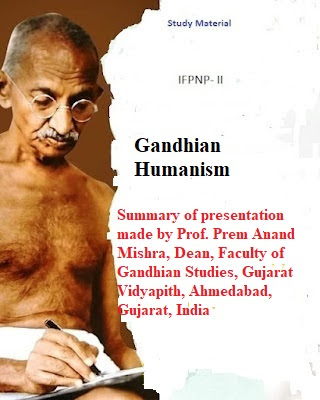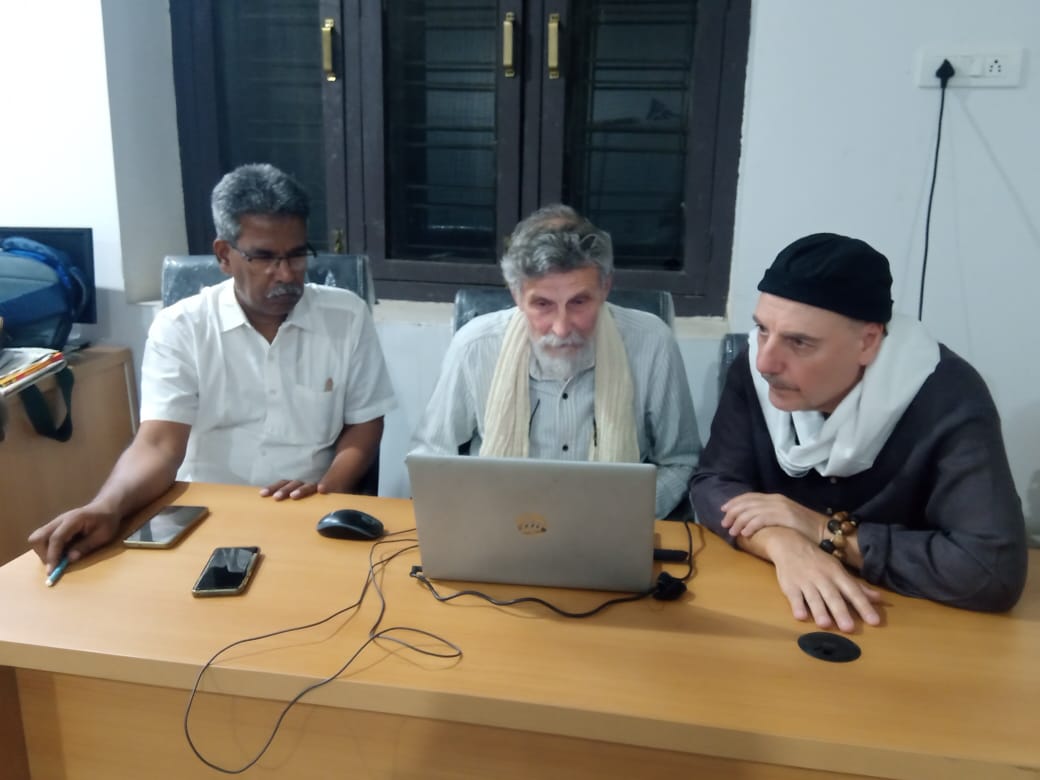Gandhian Humanism
A
Comparison of Gandhian Humanism and Capitalism / Socialism
|
Dimension |
Gandhian-humanism (Actor-oriented) |
Capitalism and
socialism (Structure-oriented) |
|
Basic unit |
Actors (individuals, states, others) |
Structures (positions and relations between them) |
|
Basic dimension |
Intention (good
vs. evil) Capability(weak
vs. strong) Presence (passive
vs. active) |
Repression vs. freedom Exploitation vs. equality Penetration vs. autonomy |
|
Problems and locations of evil |
Actors that are evil, strong, active |
Structures that are exploitative, penetrating |
|
How to cope |
Make actors good |
Make structures free and equitable |
|
Basic approach |
Focus on evil actors; building institutions to
contain actors |
Focus on wrong structures; transforming structures
through revolutions |
|
Time cosmology |
Focus on act i.e. on events |
Focus on structures i.e. permanents |
|
Social Change; basic approach |
Individual change and social reform |
Capitalism on constitutional methods and socialism
on revolution |
This
classification suggests that the theoretical construct Gandhian humanism is different from the main
discourses of our time-capitalism and socialism in terms of focus, dimensions,
basic approach and time cosmology.
The
Praxis Dimension of Gandhian thought and Humanism
It is important to point out here that individual ethical dimension of Gandhian thought and modern humanist model have many commonalities. In other words, it is possible to interpret Gandhian thought in terms of modern ethical humanism. Besides this individual ethical dimension, Gandhian social programmes can also be juxtaposed with their corresponding modern humanistic elements in the following way.
|
Gandhian Individuals Ethics (Eleven vows) |
Ethical Humanist Elements |
|
Truth(experiential and experimental) |
Truth, facticity, experiential and experimental |
|
Nonviolence |
Non-killing to human being and respect to other
species |
|
Brahmacharya or chastity |
Control of desire, sexual morality |
|
Non-possession |
Limited use of local natural resources |
|
Non-stealing |
Individual commitment |
|
Control of palate |
Controlled consumption |
|
Removal of Untouchability |
Fight against indiscrimination |
|
Equality of all religions |
Acceptance of plurality and respect to all
religion |
|
Swadeshi |
Use of local resource to help neighbours |
|
Bread labour |
Dignity of labour, self-respect |
|
Fearlessness |
Fearlessness against any authority political
(State) or religious |
Summary of presentation made by Prof. Prem Anand Mishra, Dean, Faculty of Gandhian Studies, Gujarat Vidyapith, Ahmedabad, Gujarat, India




No comments:
Post a Comment